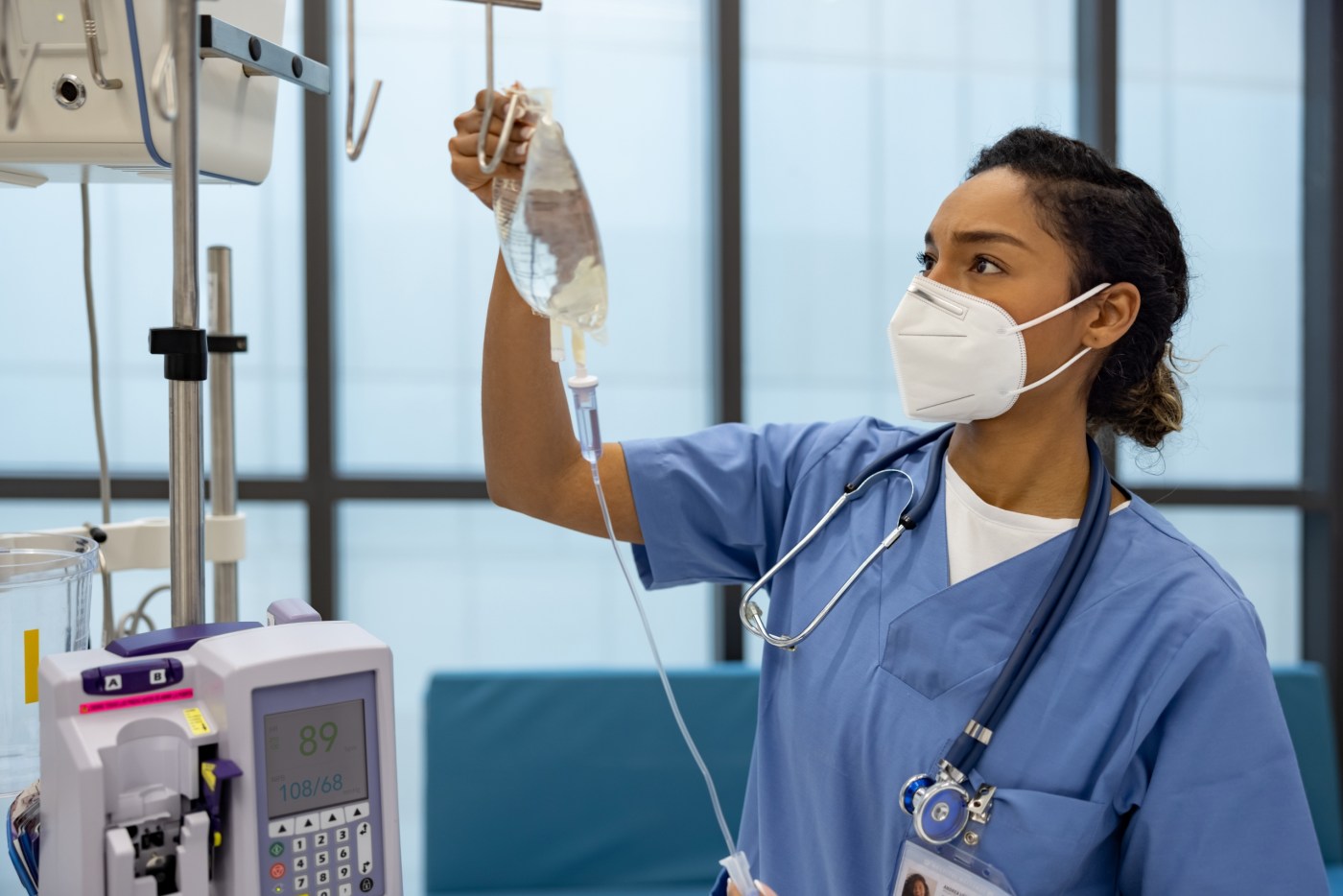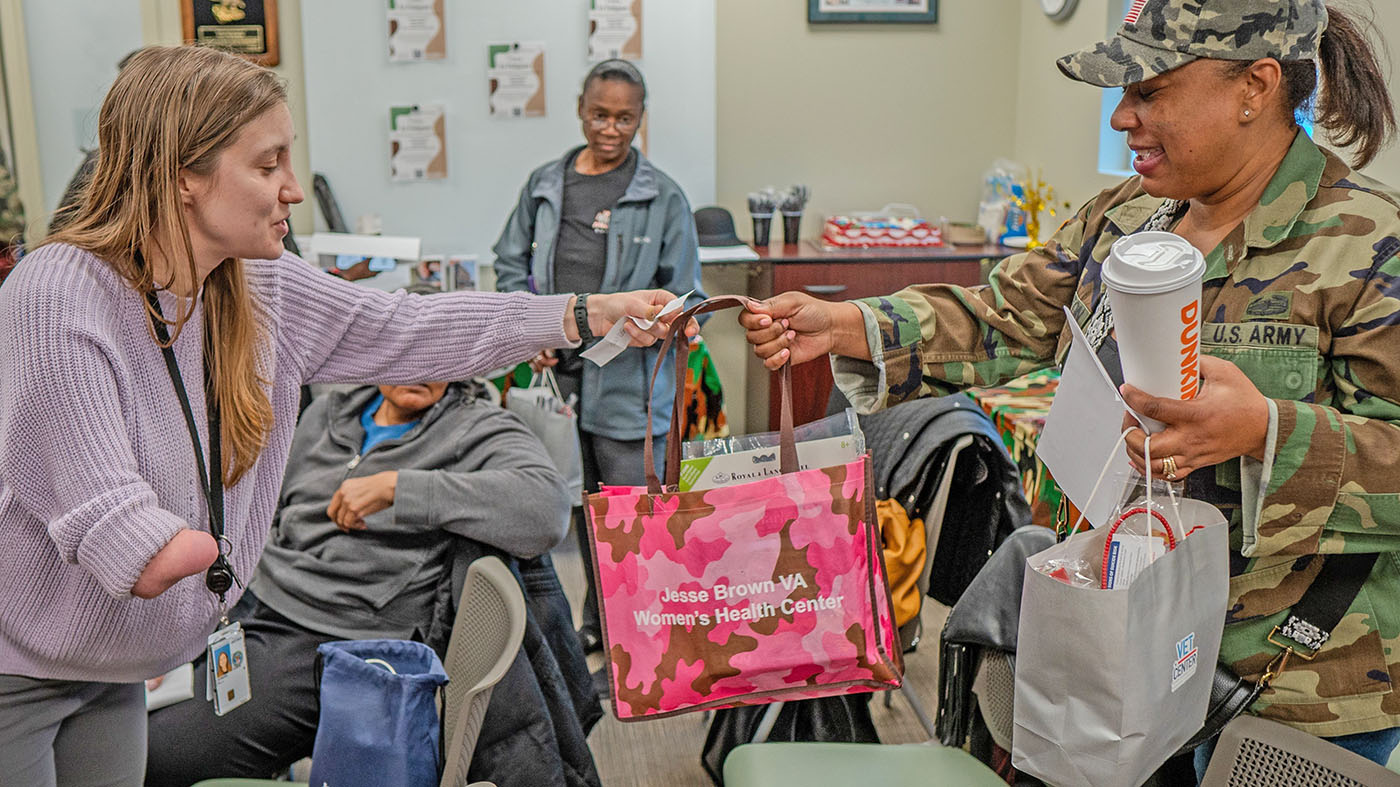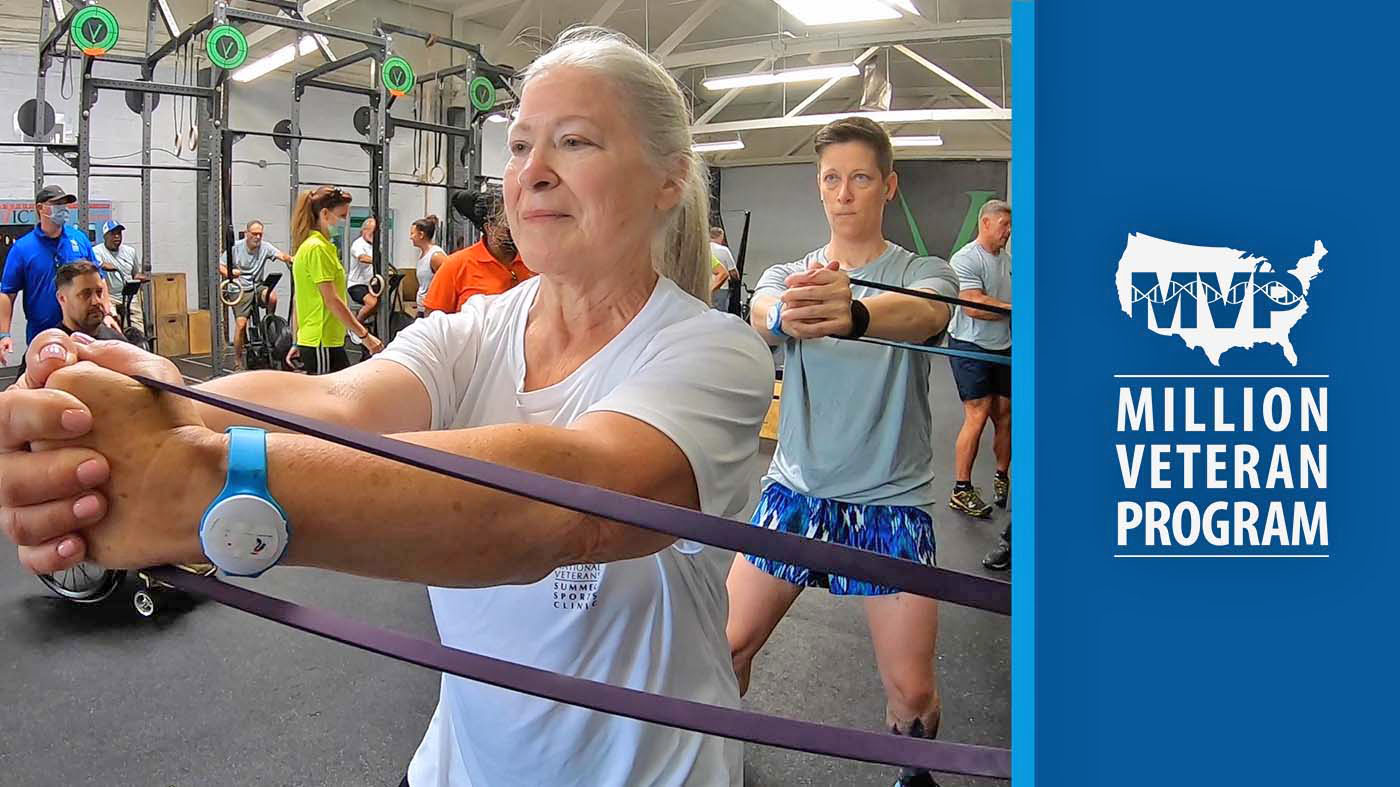Since the start of the COVID-19 pandemic, VA has played a key role among federal agencies in the study of drugs or other therapies needed to treat patients with the virus.
VA has been part of major national research initiatives on COVID-19 vaccines and therapeutics, including Operation Warp Speed, which is now the Countermeasures Acceleration Group, and the ACTIV initiative. ACTIV is an NIH-created public-private partnership aimed at developing coordinated research strategies among federal agencies for prioritizing and speeding the creation of the most promising COVID-19 treatments and vaccines. In addition to federal agencies, ACTIV includes representatives from academia, pharmaceutical companies and philanthropic groups.
Currently, VA researchers are contributing to preclinical activities in the ACTIV initiative by identifying emerging viral mutants. VA is also partnering on five ACTIV clinical trials: ACTIV-2, ACTIV-3A, ACTIV-3b, ACTIV-3c and ACTIV-4a. In these trials, COVID treatments are studied for effectiveness and safety. The trials are stopped quickly if the therapies being tested are found to be ineffective, or if safety concerns arise. But if promising data emerge, the trials will continue and new agents may be added, all within one clinical trial.
To date, more than 60 VA medical centers have been involved in trials on COVID-19 therapeutics, including antiviral drugs such as remdesivir, monoclonal antibodies, convalescent plasma and immunomodulators. Other therapeutics are in the pipeline for clinical trials, but only one has received FDA approval.
In August 2020, VA launched a master protocol program called VA CURES that aims to give Veterans faster access to potential COVID-19 treatments and to test their effectiveness. The initiative has led to a series of clinical trials across the VA network. As a master protocol, VA CURES offers a standardized framework for studies on many potential treatments for COVID-19, without the need for a new study design and protocol each time.
VA CURES has not developed into a clinical trial site network that is participating in one of the ACTIV trials. This network brings clinical trial infrastructure and expertise for supporting infectious disease trials.
For more on VA’s role in identifying COVID-19 therapeutics, VA Research Currents spoke to three experts in VA’s Office and Research and Development (ORD): Dr. Molly Klote (MK), Dr. Victoria Davey (VD), and Dr. Terri Gleason (TG).
VA Research Currents: What factors make VA a good place to conduct studies on COVID therapeutics? Electronic health records? Diverse patient population? Geographic diversity? Investigators and teams experienced in infectious disease?
TG: All of those factors are important to characterize why VA is a good place to conduct clinical trials to find solutions to COVID-related care. VA’s mission especially supports the rationale and philosophy to advance health care and Veterans for the nation. From the earliest days of the pandemic, VA research scientists across the country focused directly on how we can help drive the solution set for anyone impacted through sound scientific research.
MK: The best reason to conduct therapeutic studies in VA is because of our population. All of the reasons stated above are good practical reasons, and we have amazing relationships with our federal partners. But the primary reason VA is a great place to conduct clinical studies is we have a patient population that is invested in their care and the advancement of science for their own health and the health of their fellow Veterans. This is a population that volunteered to protect our nation, and they continue to volunteer to change the world of health and health care.
VD: I’ll add that a huge factor is the dedicated investigators and teams who are very determined to find tools to stop this pandemic, ultimately so that we can better care for Veteran patients. To that end, we’ve had investigators with infectious disease training join the ACTIV trials, but also general internists, cardiologists, pulmonologists and oncologists – VA staff and their teams with research credentials in other disciplines. The broad background of these investigators has made COVID therapeutics research well-rounded and considerate of many aspects of Veterans’ short- and long-term health. Simply put, VA has all the necessary components to do this work and more. A number of factors are required to be successful in research, and VA has the experience, tools and people to help provide quality evidence for research on COVID and COVID therapeutics.
Has VA built new infrastructure to enable research on COVID therapeutics, such as centers, funding mechanisms or collaborations?
TG: VA research has increased infrastructure investments related to support for COVID research, including in new funding opportunities, new clinical trial networks, advanced data centers and programs, and biorepository resources. From small to large endeavors and new established federal partnerships, VA research has been highly focused on collaborative well-informed infrastructure and funding opportunities.
We also established VA CURES, which has evolved into a clinical trial network. Starting with the first partnership on ACTIV4a, the VA CURES network has been an important pathway for trials focused on infectious diseases, including COVID-19 therapeutics, and will serve as an attractive resource for partnering with other federal agencies who find a large VA clinical site network a true advantage for completing multi-site trials.
VD: We’re also in mid start-up of a fantastic resource – a national VA biospecimen repository called VA SHIELD. It’s a federated system of physical biorepositories to which any VA site can contribute remainder specimens, such as nose swabs done for diagnostics that have no more use for the clinicians but are a source of the virus that can be genetically sequenced to track mutant strains. VA SHIELD should develop over time to be a center of biospecimen storage, with the ability to join specimens with donor data, while protecting privacy and confidentiality. This is another way we have been able to use COVID-19 to achieve long-term goals in VA research. VA leverages its resources, including a national clinical research enterprise. As a program with its own congressional appropriation, VA also is able to support new requirements that are specific to COVID.
MK: We have joined the NIH-created ACTIV initiative and are contributing to basic, clinical, and prevention research. For the ACTIV-2 and ACTIV-3 studies, we put together a coordinating center for the collaboration with the National Institute of Allergy and Infectious Diseases (NIAID) and its international infectious disease trial networks. This network has a long productive history of clinical research in HIV and influenza. But at the start of the pandemic, NIAID reached out to other networks to join forces, including VA, thinking we are better off collaborating strategically than developing separate research initiatives. In addition to ORD support, we established a memorandum of understanding with NIAID for current and future research and an interagency agreement for work on ACTIV studies.
More Information
Click here to read the full story.
Click here to learn more about VA research.
Click here to read about VA research on COVID-19.
Topics in this story
More Stories
Navy Veteran and president of the American Medical Association got a colonoscopy and encourages other Veterans to do the same.
Chicago Vet Center and VA gave women Veterans information on VA services available to them.
MVP’s research informs personalized care for Veterans, supporting whole health and beyond.







Keep up the good work.
Veterans may have a love/hate relationship with the VA, on getting recognition of issues such as agent orange or burn pits. But, without VA where would we be, lost in the morass of for-profit-healthcare unable to connect the dots. Thank goodness for VA care for veterans and its research on COVID treatments is one more reason why privatization/corporatization of VA healthcare is a bad idea from a misguided Congress.